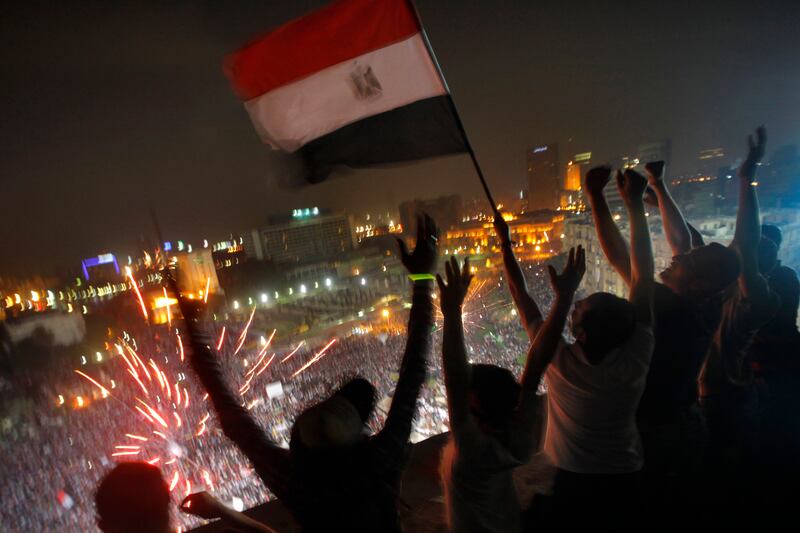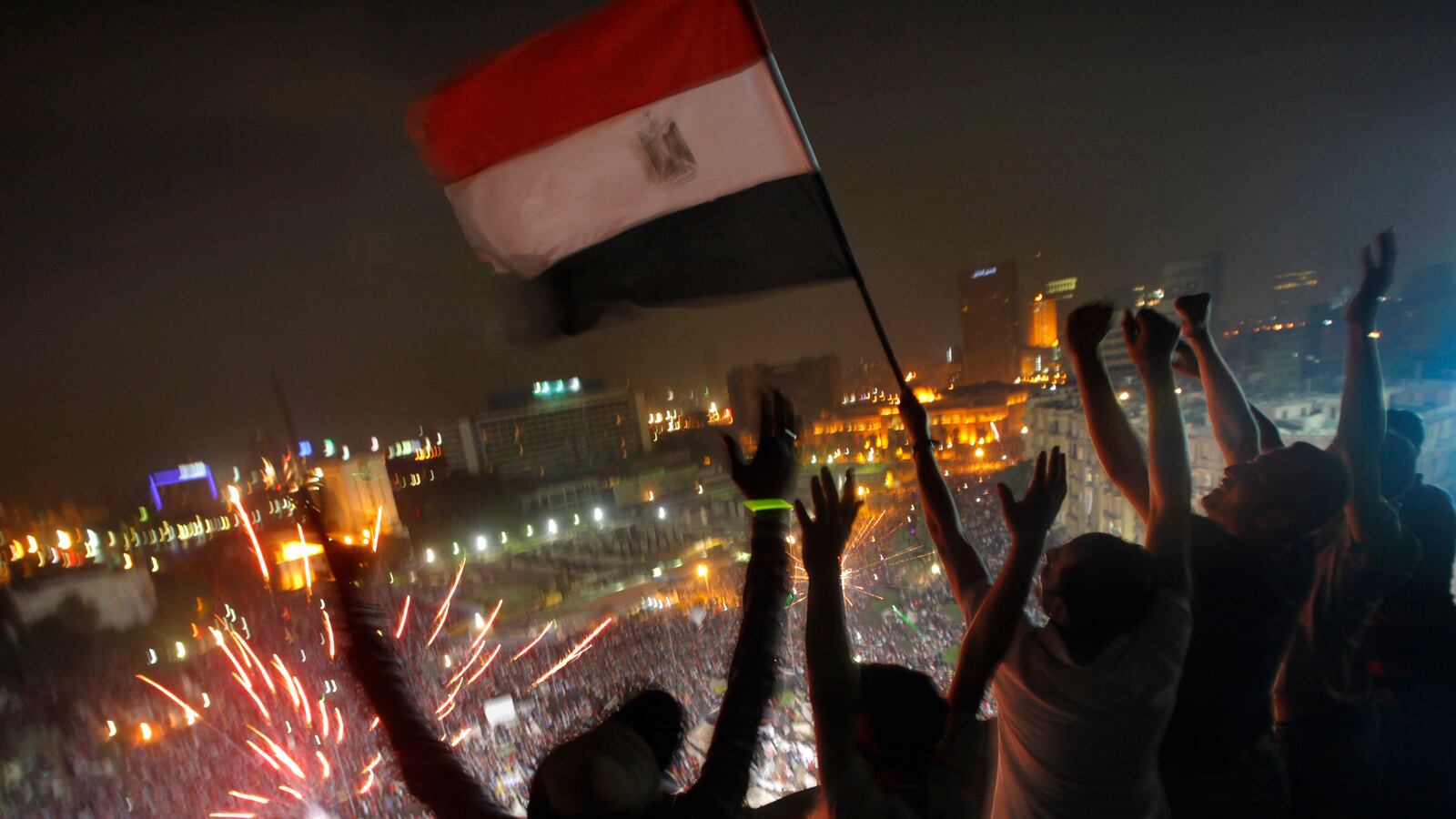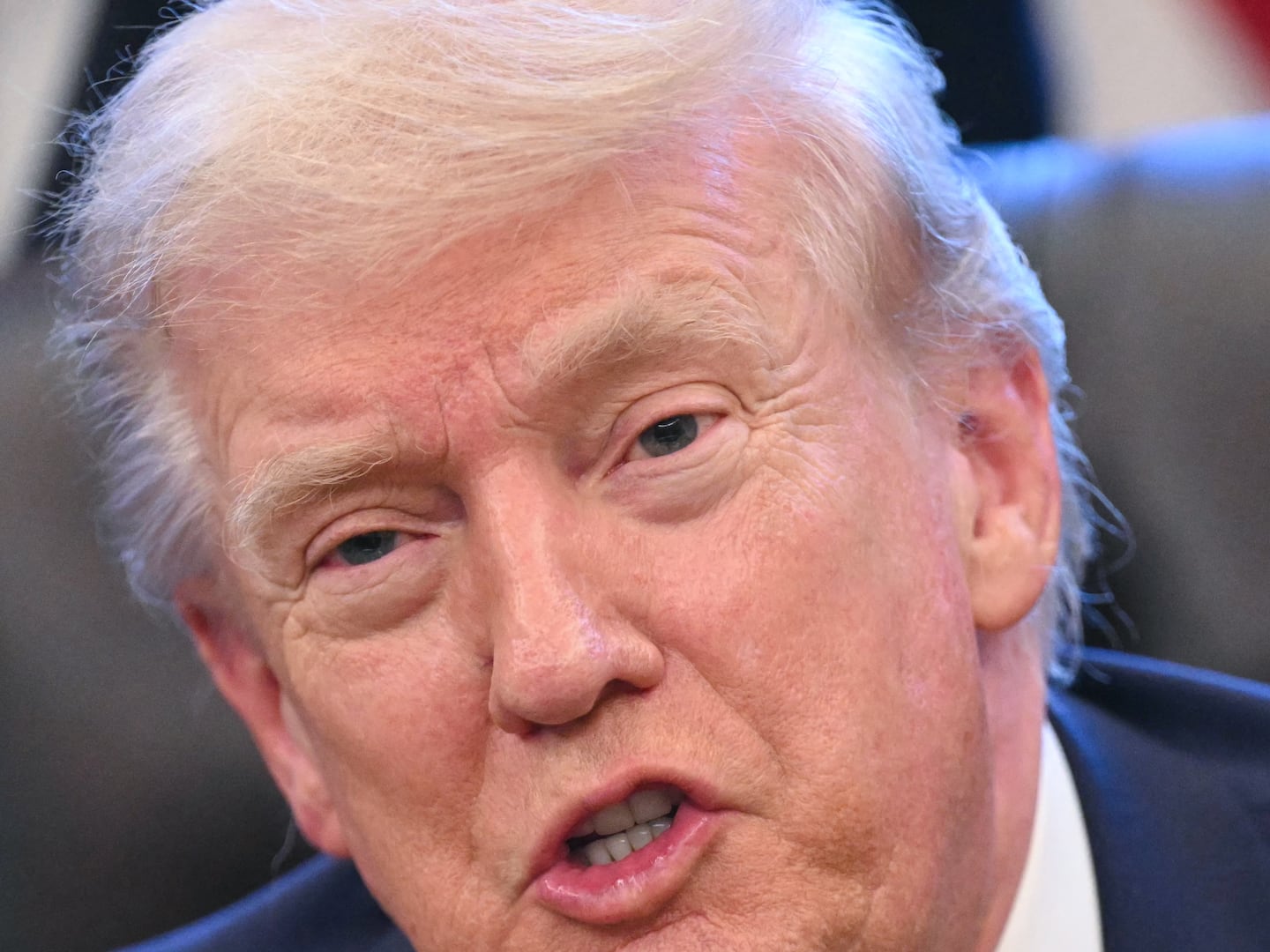Washington has a serious tendency to exalt semantics over common sense. Right now it’s fretting over whether to call what happened in Egypt on Wednesday a coup d’état.

To do so could trigger an automatic cutoff of more than $1.3 billion in American aid to Cairo and with it, the Obama administration fears, whatever is left of American influence in the Arab world’s most populous nation. Unfortunately, the law is clear: no dough for “the government of any country whose duly elected head of government is deposed by military coup or decree.” Lawmakers and journalists are turning to the American Heritage Dictionary, among other lexicons, hoping they can weasel around that wording by defining a coup as something carried out by a “small group.” This overthrow, it might be argued, had the backing of millions of people in the streets of Egypt’s cities.
Well, on this Fourth of July I’d like to suggest that our lawmakers take a look at another bit of American heritage that gives a much clearer idea of the emotions behind the ongoing Egyptian uprisings. What the masses in Tahrir Square want their rulers to understand, precisely, is that “all men are created equal, that they are endowed by their Creator with certain unalienable rights, that among these are life, liberty, and the pursuit of happiness.” And as the American Declaration of Independence proclaimed without equivocation, governments derive “their just powers from the consent of the governed.”
If a regime loses that consent, as President Mohamed Morsi’s government clearly did, then the people have the right “to alter it or to abolish it, and to institute new government, laying its foundations on such principles and organizing its powers in such form, as to them shall seem most likely to effect their safety and happiness.”
That is, in essence, what the military and the millions of demonstrators in Egypt say they are doing. Their coup (you and I need not mince our words) is an attempt to reset Egypt’s revolution so it can better serve those fundamental goals of liberty and consent. The new project may or may not succeed. The military could slide back toward arbitrary tyranny. Mobs could reduce the country to chaos. The deposed Islamists of Morsi’s Muslim Brotherhood may decide to wage a war of confrontation and terror.
But if a nascent democracy can keep in focus those basic principles that the Americans used to justify their revolution 237 years ago, it can make progress. And if Washington would emphasize those broad outlines rather than questions of procedure, it could actually develop policies in the region that make some sense. It might also stop falling prey to the notion that the Muslim Brotherhood offers a shortcut to democratic stability.
For starters, you will note that there is nothing in the American Declaration of Independence about elections, yet U.S. policy often treats them as if they were ends in themselves. Constitutions are rushed into print. Voters are stampeded toward the polls. And then Washington is surprised when the best organized, most disciplined and ruthless organizations in Iraq or Gaza, Tunisia or Egypt, emerge victorious and rule remorselessly.
The Obama administration, blindsided by the Arab Spring of 2011, has been searching with little success for some coherent way to catch up. In its confusion it has aided and abetted the rising power of the Muslim Brotherhood. Hence the graffiti and placards in Tahrir attacking Obama and U.S. Ambassador to Egypt Anne Patterson. Hence the way the Egyptian military ignored Obama’s effort to stop the coup. American diplomats felt they had few alternatives, but they wound up working with an international fraternity, if you will, that employs the strategies and tactics seen in the communist and Fascist movements of the 1920s and ’30s.
“They are a blend of Boy Scouts [for their charitable work], a Sufi order [for their mysticism], and the Brownshirts of Europe,” says Robert Springborg of the U.S. Naval Postgraduate School. “With their rigid structure, their indoctrination, they are worse than a Marxist-Leninist party,” he suggests, and they should be recognized for the anachronism they are: “a wooly mammoth out in the desert.”
Like those other authoritarian movements, the brotherhood is prey to divisions and schisms. But the Obama administration has tended to deal with it as if it could be handled in each country on a purely local level. In fact, the brotherhood’s leaders take a long view. They think strategically about how best to dominate the Middle East and eventually the whole Muslim world, and electoral victories are just a means to that end. As the Morsi government proved in Egypt, the consent of the governed and the guarantee of liberty are not part of the program. In Gaza, Hamas grew out of the organization and remains an important part of it. In Syria, the brotherhood supports armed struggle while working relentlessly to dominate political coalitions, even if that means tearing them apart.
The tiny, super-rich emirate of Qatar has bankrolled the Muslim Brotherhood’s activities all over the Middle East. Al Jazeera Arabic, the Qatari satellite network that used to be the voice of the masses fighting the region’s tyrannies, has devoted itself to rationalizing the brotherhood’s excesses wherever they took power. So it’s not surprising that Al Jazeera’s Egyptian affiliate was shut down by the military when they ousted Morsi. The new 33-year-old emir of Qatar, who succeeded his father last week, may want to rethink his country’s identification with an organization that no longer looks like a winner.
None of this is to say that the United States should rejoice at what’s just happened. But it can learn from the experience. Lebanese blogger Amal Ghandour suggests that the greatest threat to the Islamist organization of the brotherhood is likely to come from what she calls “post-Islamist” groups, including ex-Brothers. These aren’t secularists, writes Ghandour, but they have a “more generous interpretation of Islam’s exhortations and a more rigorous recognition of its serious limitations as a ‘solution’ to life’s mundane problems.” These are the kinds of people Washington needs to get to know better.
It’s also time to start listening to “the people” more than once every few years at the polling stations. For many years under many dictators in the Arab world, references to “the Arab street” were a joke. The tyrants used their faux fear of public opinion as an excuse to do, or not do, whatever they liked. But the last three years in the Middle East, and the last few days in Egypt, have shown us that the street is real and millions are demanding to be heard as they declare their unalienable right to life, liberty, and the pursuit of happiness.






